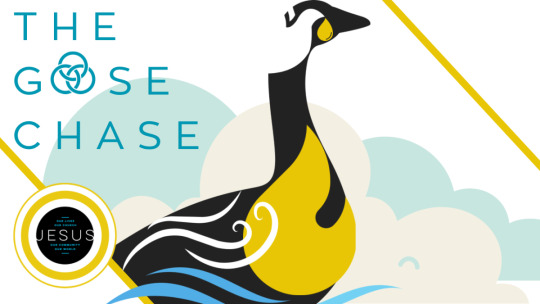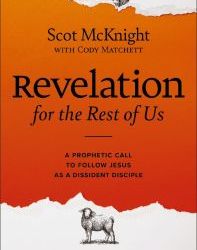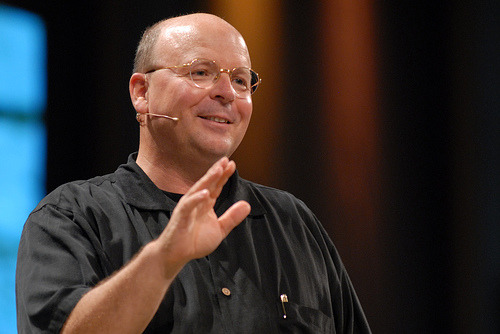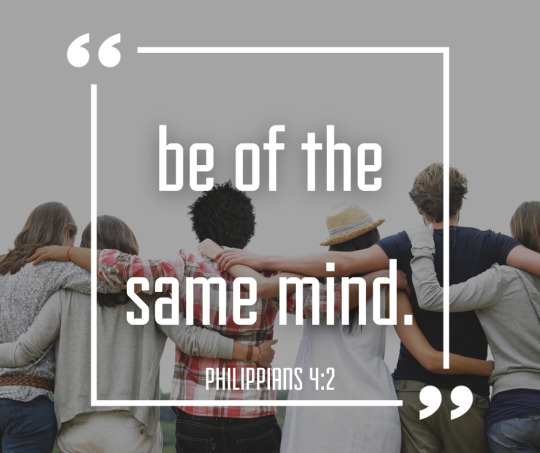#Scot McKnight
Text
All of us should take note.
THIS is an apology. Not a fauxpology. But a real apology.
2 notes
·
View notes
Text
The Books Most Responsible
Some time ago, a friend of mine shared a list of her “books most responsible” for who she is and how she thinks, and I found myself wondering which books might appear on my list.
I’ve read many books (and have many, many more that I want to read), some of which have undoubtedly shaped me in some meaningful way and then been lost to the porous sands of my mind. But upon reflection, I believe…
View On WordPress
#A.G. Sertillanges#Augustine#Books#Books Responsible#C.S. Lewis#Craig Bartholomew#Drama of Scripture#Education#Encounter#Experience#Faith#Formation#George Seldon#Gilbert Meilaender#Helmut Thielicke#J.R.R. Tolkien#John Milton#Life#Michael Bauman#Michael Goheen#Michael Ward#Mind#Paul Maier#Peter Kreeft#Reading#Richard Mitchell#Scot McKnight#Thomas Sowell#Tish Harrison Warren
0 notes
Text
THE GOOSE CHASE | GIFTS, Pt. 2 (1 COR. 12:1-13:3)
THE GOOSE CHASE | GIFTS, Pt. 2 (1 COR. 12:1-13:3)
'Paul emphasises the diversity of the one Spirit’s gifts. Everyone has a gift in the body of Christ, and that gift, however great or small we deem it, is as important as the others and is an amaz
Here’s my longer sermon notes from this morning’s Metro Christian Centre service (dated 14th Jan. 2024), session twelve in our series on the Holy Spirit.
You can also catch up with this via MCC’s YouTube channel (just give us time to get the video uploaded).
‘And a lean, silent figure slowly fades into the gathering darkness, aware at last that in this world, with Great Power there must also…

View On WordPress
#1 Corinthians 12#Charismata#Christ#Diversity of Gifts#Gifts Of the Spirit#Great Power Great Responsibility#Kenneth Bailey#Purpose of Gifts#Scot Mcknight#Spiritual Gifts#Stan Lee#The Body#The Holy Spirit
0 notes
Text
The Best Solution to the Problem of War
The Best Solution to the Problem of War
Rev. Canon Dr. Scot McKnightProfessor of New TestamentNorthern Seminary
My friend and former colleague Scot McKnight has written a book titled The Audacity of Peace (Minneapolis, Fortress Press, 2022), in which he presents his views on war and peace.
Scot McKnight is Professor of New Testament at Northern Seminary. Scot is a prolific writer. At the present, Scot is writing a commentary on every…

View On WordPress
0 notes
Text
0 notes
Text
The Crown of Life
God blesses those who patiently endure testing and temptation. James 1:12 NLT
READ James 1:1–12
audio playLISTEN ONLINE
Twelve-year-old LeeAdianez Rodriguez-Espada was worried that she’d be late for a 5K run (just over 3 miles). Her anxiety led her to take off with a group of runners fifteen minutes earlier than her start time. She didn’t realise it, but they were participants of the half-marathon (more than 13 miles!). LeeAdianez fell in pace with other runners and put one foot in front of the other. At mile four, with the finish line nowhere in sight, she realised that she was in a longer and more difficult race. Instead of dropping out, she simply kept running. The accidental half-marathoner completed the race and placed 1,885th out of 2,111 finishers. Now that’s perseverance!
While undergoing persecution, many first-century believers in Jesus wanted to drop out of the race for Christ, but James encouraged them to keep running. If they patiently endured testing, God promised a double reward (James 1:4, 12). Firstly, “perseverance [would] finish its work” so they could be “mature and complete, not lacking anything” (v. 4). Secondly, God would give them the “crown of life”—life in Jesus on earth and the promise of being in His presence in the life to come (v. 12).
Some days the Christian race feels like it’s not the one we signed up for—it’s something longer and more difficult than we expected. But as God provides what we need, we can persevere and keep on running.
By Marvin Williams
REFLECT & PRAY
What difficulty are you enduring right now? What can you do to remain faithful to God as you undergo testing?
Dear God, my legs are tired, and I feel like giving up. Please strengthen me.
SCRIPTURE INSIGHT
James encourages believers in Jesus experiencing “trials” (1:2, 12) by describing their unseen value—growth in perseverance, maturity, and wisdom (vv. 3-5). How believers respond to difficulty witnesses to their faith in Christ, who promises them a “crown of life” (v. 12).
Many believe these trials included persecution for their faith. New Testament scholar Scot McKnight argues that James’ emphasis on the dangers of wealth and the value of humility and poverty (vv. 9-11; 2:1-7) suggests that this persecution took the form of economic oppression. In James 2:6-7, the author describes the wealthy exploiting and oppressing believers.
Monica La Rose
#thoughts#me moi en mezelf#bible readings#daily devotion#december 2023#odb#mentalheathawareness#the crown of life
0 notes
Text
6 Best Books on Women’s Equality
Rediscovering Book’s Vision for Women Fresh Prespectives on Disputed textbooks
Introduction
In recent years, discussions surrounding the role of women in the Christian church have evolved into a significant theological and social discourse. With the emergence of new perspectives, authors like Lucy Peppiatt and Scot McKnight have sought to revisit the often-debated biblical passages that…
View On WordPress
0 notes
Text
Scot McKnight with Cody Matchett, Revelation for the Rest of Us
Scot McKnight with Cody Matchett, Revelation for the Rest of Us -
McKnight, Scot with Cody Matchett. Revelation for the Rest of Us: A Prophetic Call to Follow Jesus as a Dissident Disciple. Grand Rapids, Mich.: Zondervan, 2023. xiii+3412 pp. Hb; $26.99 Link to Zondervan
In the introduction to this new book on Revelation, Scot McKnight describes his early encounters with Revelation in the early 70s. This was all eerily familiar to me. Like McKnight, in my…

View On WordPress
0 notes
Text
The Secret to Unity, Joy, and Peace in Philippians 4:2-9, 21-23

In this posting, we are concluding the blog series with content from biblical scholar Scot McKnight. McKnight has recently published the New Testament Everyday Bible Study series with HarperChristian Resources. McKnight combines interpretive insights with pastoral wisdom for all the books of the New Testament. Each volume provides original meaning, fresh interpretation, and practical application.

In this blog series, we’ve been sharing Scot’s insights and wisdom on the book of Philippians. It is available as a book as well: Philippians and 1 & 2 Thessalonians: Kingdom Living in Today’s World.
For twelve weeks, Bible Gateway published a chapter from the Bible study book, taking you through the full text of McKnight’s study on Philippians. For this week, here is the final study, A Common Life of Unity, Joy, and Peace | Philippians 4:2-9, 21-23
2 I plead with Euodia and I plead with Syntyche to be of the same mind in the Lord. 3 Yes, and I ask you, my true compan- ion, help these women since they have contended at my side in the cause of the gospel, along with Clement and the rest of my co-workers, whose names are in the book of life.
4 Rejoice in the Lord always. I will say it again: Rejoice!
5 Let your gentleness be evident to all. The Lord is near. 6 Do not be anxious about anything, but in every situation, by prayer and petition, with thanksgiving, present your requests to God.
7 And the peace of God, which transcends all understanding, will guard your hearts and your minds in Christ Jesus.
8 Finally, brothers and sisters, whatever is true, what- ever is noble, whatever is right, whatever is pure, whatever is lovely, whatever is admirable—if anything is excellent or praiseworthy—think about such things. 9 Whatever you have learned or received or heard from me, or seen in me—put it into practice. And the God of peace will be with you.
21 Greet all God’s people in Christ Jesus. The brothers and sisters who are with me send greetings. 22 All God’s people here send you greetings, especially those who belong to Caesar’s household.
23 The grace of the Lord Jesus Christ be with your spirit. Amen.
Special Note to the Reader: The text and commentary for Philippians 4:10–20 are found at the beginning of the Bible study.
Paul often begins to end his letters a page or two before he finally signs off. He’s at times more like the preacher who seems to have two or three or four endings before ending. His “Finally” in verse eight then is but the beginning of “Finally.” In this beautiful first-of-his-final section three of his favorite themes in this letter come to expression again: unity (4:2–3), joy (4:4–7), and peace (4:8–9).
Unity
It’s good to start with the last line of this first paragraph, that is, with the end of verse three. He will soon mention three names and a number of others who are unnamed, and he reminds them that all their names are “in the book of life” (4:3). We can nurture unity with those with whom we disagree when we begin with a profound reality: we will live with one another in peace in the final kingdom of God.
The first two names surprise us. We have not heard of these women before but mentioning their names may well make us wonder if their contentions with one another were at work in other passages. Many think so. The name Euodia means “Ms. Good Path” and Syntyche means “Ms. Fortune.” Cool names aside, Paul knows they are at odds with one another.

He wants them to “be of the same mind” (4:2), which means to come to some kind of agreement. We can’t be sure what they were on about, though many suggestions have been made, including how to relate their own social status to living as a Christian in Philippi or perhaps they were battling in court.
Asking two people at odds to agree often does not do it as it involves compromise, and often each believes her position is principled and right. Knowing this, Paul asks a specific unnamed person (“you”), whom he calls his “true companion” or the one with whom he is “harnessed together,” to nurture reconciliation. But then we get some more information about the situation. Euodia and Syntyche have competed with Paul in gospel mission work along with “Clement” and other “co-workers,” his favorite term for his inner circle of gospel missioners.
This puts these two women inside the circle of co-workers, which means gospel workers–evangelizing, teaching, planting churches, praying, visiting, offering hospitality, raising funds, and more. Were they deacons? Were they household leaders of different house churches? Were they bishops? What is clear, as Osiek observed, is that they are not just bickering women, which is a sexist observation by too many, but leaders of significance in Philippi. Their tension taxed the assemblies.
Joy
Paul’s own imprisonment turned him into an agent of joy. Just look at the following verses in this short letter to see how often he brings up joy: 1:4, 18, 25; 2:2,17–18, 28, 29; 3:1; 4:1, 4, 10.
Again, someone says “persecution,” and Paul answers back with “joy.” This is not a mental trick, even if the happiness project works for some. No, this is a joy “in the Lord” because, as he tells them in the next verse, the Lord’s coming is “near.” Joy transcends our sense of happiness when happiness slides into smiley faces or giddiness. Joy is a disposition and an emotion of seeing the present in light of the final kingdom of God and the lordship of Jesus right now. The End’s “all will be well” opens the door to joy.
Joy in whatever we face leads Paul to encourage those in Philippi to a list of healthy practices in the midst of social tension over the gospel and the church. The temptation is to get busy doing something about it–contacting the authorities, public debates in the marketplace, and worry worry worry. No Paul says, resume your life, avoid aggressiveness, and form a “gentleness . . . evident” to the public (4:5).
How? Turn to communion with God as the antidote to inner turbulence, which is my translation for “anxious.” What might that be? What wakes you up in the middle of the night that will not let you fall back to sleep? What raises your blood pressure and makes your face go flush? What makes you tense and makes your palms sweat and what turns at times into anxiety attacks?
The first-century philosopher Seneca once said, “The fact that the body is lying down is no reason for supposing that the mind is at peace.” He had to know. The man was in the inner circle of the emperor.
Now I have wandered into something that in many cases will need more than someone telling you to pray more. I don’t believe that Paul provides a full “cure for worry.” “Do not be anxious” is not about anxiety disorders or trauma-related panic attacks. At times we will need a therapist to help us identify our anxieties and their roots, a therapist who can guide us into better coping skills–like rest, relaxation, exercise, better eating habits, cognitive-behavioral or trauma therapies, and perhaps medication.
And prayer.
In Marilynne Robinson’s wonderful novel, Lila, the narrator says of the lead character who observes her pastor husband praying. “She meant to ask him sometime how praying is different from worrying. His face was about as strained and weary as it could be, white as it could be.” Few tie prayer and worry together so tightly, but that’s to the detriment of many. They go together.
Paul does not know what we know about therapy, but he does know prayer has helped him immensely. It has helped many of us. Regardless, “in every situation,” he says, we can turn to God in “prayer and petition” and just plain ask God for help (4:6).
Prayers of petitions in the history of the church have formed into what is called a “collect,” a formal prayer of request. It begins by naming God (Father, God Almighty, etc.), and it then says something to God about God that reminds God of a truth about God that forms a solid foundation for the request.
So we have “Father, you are the transcendent and utterly calm God of all creation and you know all things” Then it turns to the request: “Calm my heart and mind and relieve my anxieties.” This is then followed by a commitment for the one praying: “That I may do what you have called me to do more effectively, less anxiously, and more victoriously.” And Christian prayers always finish with something like “through Christ our Lord, Amen.”
Nothing has been more calming and soothing in my own soul than the collects of the church and pondering God in the midst of my own anxious moments.
Peace
Finishing his encouragement to pray (4:6–7), no surprise here is the claim that prayer promotes peace (4:7), which leads Paul to another “Finally” about doing the right things. In doing the right things “the God of peace will be with you” (4:9). So, peace begins and ends this exhortation to do the right things. What are the right things, which are right-er when done as well at the right time?
Whatever is true,
Whatever is noble,
Whatever right,
Whatever is pure,
Whatever is lovely,
Whatever is admirable.
If anything is excellent or praiseworthy . . .
What a splendid list of eight virtues, any of which can remind us of what the right thing may be for us to do!
Paul urges the Philippians to think positive thoughts: “Think about such things” and not about the sources and causes of our anxieties. I confess that what often has calmed my soul in the middle of the night is not these wonderful virtues but standing near a golf green and chipping balls onto the green. Which was an improvement for me over my mother’s instruction to me as a child, which may have been yours: Count sheep. And think about it, sheep are covered with an abundance of wool, wool makes me itch and get warm, and that doesn’t help me get to sleep at all. God does.
Paul returns to the theme of imitation (see 3:12–4:1) to close this passage with one more “whatever,” and this one is “whatever you have learned or received or heard from him, or seen in me–put into practice” (4:9). This whatever reduces those eight virtues above to one: imitation of a wise person. The best way to grow is to imitate the one who has grown.
Signing Off
As you may remember, we began this study by looking at 4:10–20 as the gateway into this wonderful letter. Skipping that passage now, we turn to the end. He wants them to greet “God’s people in Christ Jesus.” The siblings who are near Paul in his imprisonment send their greetings too (4:21).
In fact, “all God’s people” in Rome with Paul share their greetings, but Paul mentions a special group when he says, “especially those who belong to Caesar’s household” (4:22). It appears Paul is in the custody of the emperor and some of those who are guarding him are in the employ of the emperor Nero. Some of those have converted to the gospel about Jesus through Paul’s witness. The Book of Acts told that very story of the gospel’s expansion from Jerusalem all the way to Rome.
After all this letter’s emphasis on generosity and gift giving, we cannot avoid hearing something about gift giving when Paul signs off with “the grace of our Lord Jesus Christ,” who is grace embodied, “be with your spirit. Amen” (4:23).
Questions for Reflection and Application
- What have you been taught or assumed about Euodia and Syntyche in the past? How does this study impact your view of them?
- What are the conflicts and worries in your life that threaten to choke out unity and joy?
- How has prayer comforted you when you were anxious
- In addition to prayer, what other gifts of experience, rest, and science have brought peace to your worry?
- What have you learned about the common life shared together with others in Christ through this study?
The New Testament Everyday Bible Study is published by HarperCollins Resources, a division of HarperCollins Christian Publishing, Inc., the parent company of Bible Gateway.
Source link
Read the full article
0 notes
Text

꧁--Empapado por el Espíritu--꧂
22 de julio de 2023
El escritor Scot McKnight cuenta que, cuando estaba en la escuela secundaria, tuvo lo que llama una «experiencia de ser empapado por el Espírit…da clic en el enlace para leer todo, gracias.
👇🏾
https://iglesiakayros.es.tl/
shalom !
#kairosnanchital#sanregino#cristo#ka1rosnan#nanchital#iglesiaapostolica#el triunfo#el triunfonanchital#eltriunfo#iglesiaapostólica
0 notes
Text
AD 70 AS A POINTER TO THE SECOND ADVENT
By Ken Gentry
AD 70 prefigures the Second Advent; it is theologically linked to it. But this does not imply any concept of double-fulfillment. There is a fundamental difference between prolepsis and double-fulfillment. Let me explain.
In the OT we have several “Day of the Lord” events: against Babylon (Isa 13:9), Jerusalem (Joel 2:1), and others. Each of these is a pointer to the final Day of the Lord (2 Pet 3:10), though each OT version is spoken of as THE (singular) Day of the Lord. This is much like our spiritual resurrection in salvation (John 5:24-25; 1 John 3:14) pointing to our final resurrection at the end of history. Or like the Christian’s being a “new creation” (2 Cor 5:17; Gal 6:15), which is a picture of the consummate new creation (2 Pet 3:10).
These observations represent standard proleptic theology, which is often called: Now-But-Not-Yet theology. This is held by most evangelical theologians.
In fact, many scholars see AD 70 as a microcosm of the final judgment. Consequently, we may expect the same imagery to apply to both AD 70 and the end.
For instance, of those first-century events, Bloesch states: “The catastrophe that befell the Jewish people in A.D. 70 is a sign of the final judgment.” (Donald G. Bloesch, The Last Things: Resurrection, Judgment, Glory [Downers Grove, Ill: InterVarsity, 2004], 84.)
Morris agrees: “a theological unity between the two judgments, and that some of what Jesus says [in the Olivet Discourse] could apply equally well to both.” (Leon Morris, The Gospel according to Matthew [Grand Rapids: Eerdmans, 1992], 593.)
Mounce concurs: “the coming destruction of Jerusalem was anticipation of the end of the age.” (Robert H. Mounce, Matthew [Peabody, Mass.: 1991], 222.)
Hagner writes: “The fall of Jerusalem is described in quasi-eschatological language and in the same discourse that describes the coming of the Son of Man. The two events are obviously linked in the minds of the disciples (as their question implied, 24.3) and very probably in the mind of the evangelist.” He continues: “There is a theological relationship between the fall of Jerusalem and the end of the age, since both involve judgment. . . . The former is the prefiguration of the latter.” (Thomas E. Schmidt and Moises Silva, To Tell the Mystery: Essays on New Testament Eschatology in Honor of Robert H. Gundry [Sheffield, Eng.: Continuum, 1994], 66.)
Reymond speaks of Christ’s “‘lesser (typical) coming in judgment’ in the destruction of Jerusalem in A.D. 70.” (Robert L. Reymond, A New Systematic Theology [Nashville: Nelson, 1998], 215.)
Alexander calls AD 70 a “prefiguring,”Robertson “a symbol” of the end. (Joseph Addison Alexander, The Gospel according to Matthew Explained [Lynchburg, Vir.: James Family, rep. n.d., (1861]), 345.)
Of AD 70, T. J. Geddert states: “the events were, as do so many events in the OT, to point toward the final judgment.” (in Michael B. Green, Scot McKnight, I. Howard Marshal, eds., Dictionary of Jesus and the Gospels: A Compendium of Contemporary Biblical Scholarship [Downers Grove, Ill: InterVarsity, 1992], 23.)
Bavinck sees AD 70 as “the announcement and preparation of the consummation of the world.” (Herman Bavinck, The Last Things: Hope for This World and the Next, trans. by John Vriend, ed. by John Bolt [Grand Rapids: Baker, 1996], 108.)
Strimple as “a proleptic, typological fulfillment of that final judgment of God.” (Robert B. Strimple in Darrell L. Bock, Three Views on the Millennium and Beyond [Grand Rapids: Zondervan, 1999], 64).
In fact, DBI observes that “Scripture portrays God’s judgments throughout history as proleptic pictures of the final judgment.” (Leland Ryken, James C. Wilhoit, Tremper Longman III, eds., Dictionary of Biblical Imagery [Downers Grove, Ill: InterVarsity, 1998], 472.)
Kenneth Gentry
0 notes
Text
THE GOOSE CHASE | ACTS OF THE SPIRIT (ACTS)
THE GOOSE CHASE | ACTS OF THE SPIRIT
'The Holy Spirit, like Miss Rabbit, is the glue pulling and holding this community together, and the driving force that keeps this community moving forward.'
Here’s my longer sermon notes from this morning’s Metro Christian Centre service (dated 5th Nov. 2023), session six in our series on the Holy Spirit.
You can also catch up with this via MCC’s YouTube channel (just give us time to get the video uploaded).
‘Where the church is, there is also the Spirit of God; where the Spirit of God is, there is also the church and all grace’
Irenaeus[i]
‘The…

View On WordPress
#Acts#Acts of the Apostles#Acts of the Spirit#Amos Yong#Azuza Street#community#diversity#Holy Spirit#Jack Levison#Jane Williams#Miroslav Volf#Miss Rabbit#Peppa Pig#Scot Mcknight#Wild Goose#William Seymour#Willie James Jennings
1 note
·
View note
Text
Ten Books Pastors Should Read: New Testament
Ten Books Pastors Should Read: New Testament
Pastors and Their Books
I have published a list of ten books pastors should read in order to gain a better understanding of the Old Testament. One reader asked me if I could provide a list of ten books pastors should read in order to gain a better understanding of the New Testament.
Since New Testament scholarship is outside of my area of expertise, I asked my friend and former colleague at…

View On WordPress
0 notes
Text
Uncovering the Surprising Secrets of Philippians: A Blog Series with Scot McKnight
http://dlvr.it/SmN9HR
0 notes
Text
Different shapes of Prayer
I have previously shared about the ancient practice of praying three times a day that was formalized by Rabbinic Judaism and carried on by the church up to the present in liturgical churches. I’m sharing a website that I’ve been enjoying for Daily Offices for morning, midday, evening. It has great written prayers, psalms, and scripture readings. I practiced only doing spontaneous prayers for 15 years, and just saying what comes to mind really can become like vain repetition; especially, if you don’t feel like praying or are having trouble finding words. It can be easy to lose focus, ramble, or forget what you prayed a few hours later. Only giving myself the option of spontaneous prayer can sometimes feel burdensome and mentally draining, which used to keep me from praying as consistently as I should. But that is not the only way to pray, and when Paul said pray continually, I think he was encouraging them to keep saying traditional prayers and psalms, as well as, spontaneous prayers. The Shema prayer was traditionally said twice a day, the Amidah three times a day, and situational berakhot (blessings) throughout the day. The Lord’s Prayer is a modified and shortened version of the Amidah. As essentially non-denominational Protestants, we don’t teach this type of prayer. We’re mostly afraid of it, because of the danger of prayer becoming impersonal. But for me, I have been using it as way to shepherd me in my prayer times; particularly, when I don’t feel like praying. I rarely recite the full daily office, because it’s a lot of material, and some days I don’t use it at all. It’s not about being rigid, just consistent in my fellowship with the Spirit. I recommend the book, Praying With The Church by Scot McKnight for more on this topic.
0 notes
Text
The Jesus Creed -- Matthew 22:34-40 -- Sunday, October 30, 2022
The prayer-foundations of our faith
When I was a boy growing up in my home church—probably in the 1st or 2nd grade—I had the privilege of being in Evelyn Harpine’s Sunday School class. Mrs. Harpine taught Sunday School at Bethel Church of the Brethren in the village of Mayland for 37 consecutive years; two entire generations of children benefitted from her consistent, faithful presence.
As young elementary students, Mrs. Harpine met us where we were, teaching us what it means to love Jesus and be part of a church community at a level that was appropriate for our age, before sending us off to the next classes that continued our spiritual formation on our way to adulthood.
Her nurturing provided a foundation to our faith; and like a good foundation for a home or a building, her work wasn’t always so visible—I have only the vaguest memories of being in her class—but here I stand, nonetheless!
In many ways, these first two prayers in the Great Prayers of the Church series are like Mrs. Harpine’s Sunday School class—foundational to our faith. In times when the church placed a higher priority on catechism—using summaries of the principles of the faith to instruct believers—it was nearly universal that the Lord’s Prayer was used as a teaching tool for new Christians to learn how to be in communion with God. As we saw both last Sunday and Wednesday night, whether we take it as given to us or use it as a framework for an expanded prayer form, the Lord’s Prayer provides to us the basic elements of an intelligent and sustaining prayer life.
That is also the case of today’s prayer, the so-called Jesus Creed. This is the term that theologian Scot McKnight gives to the Greatest Commandments from Matthew 22. You might have noticed that this so-called prayer doesn’t exactly feel like a prayer, and you would be right about that. The commandments to
love the Lord your God with all your heart, and with all your soul, and with all your mind
and to
love your neighbor as yourself
are closer to an affirmation of faith, a short statement summarizing the basic elements of our faith.
I will leave it to you to decide how important that distinction is. For my own prayer purposes, I have often found it helpful to affirm a statement like the Jesus Creed as a reminder of the core commitments of my faith, and how it is that God calls me to live. If for whatever reason it concerns you that these don’t sound very prayer-like, then just add the phrase, “Lord help me to…” in front of each one, and voila! you’ll have a prayer!
Context is important
As we consider these words, let’s ask ourselves what they meant to Jesus. When we arrive in Matthew 22, we find ourselves in the middle of Holy Week, a week where Jesus had an increasing number of confrontations with both religious and political leaders about the nature of the kingdom of God. Our text this morning comes as part of a contest between Jesus and the other religious leaders who are trying to trap him into saying something that they can then use against him.
People really haven’t changed all that much over time, have they. What Jesus’ opponents want to do is to get him on record as having made a particular statement so that they can say “Aha! I told you he was that way—see what he said!” They want to find one statement by Jesus and then use that to characterize the entirety of his life by that one statement.
Jesus, of course, knew exactly what they were up to and found a way to confound them every time, finding the flaws in their rigidly binary way of thinking about how we are to live in relationship to God, to our government, to people who die without leaving an heir for their children, and other challenging Biblical texts.
Matthew tells us that this particular question is a test—it’s a test in the form of a trick, because no self-respecting Pharisee would elevate one law over all the others. To them, it would be a bit like asking, “Which one of your children do you love the most?” The Pharisees—to their credit—took Scripture very seriously and wanted to emphasize that all of the laws were equally important.
The difficulty with emphasizing everything is that it becomes a limiting view of Scripture. The Jewish tradition recognized 613 laws in the Old Testament that were to guide people’s lives. How is it possible for any of us to keep track of 613 tasks? We ultimately can’t—so we end up focusing on the biggies or we work out in our own minds which ones are the most important and focus on those. It’s like saying to our teacher, “Just tell me what I need to know for the test” and I’ll be fine!
I read a story about a pastor who moved into an aboriginal community in Australia as a mission worker and then later stayed when he met his wife and they were married. One of the fascinating things he learned there was that when two aboriginal people meet one another for the first time, they don’t say “Hi, how are you?” they say, “Who are your relatives?” Knowing that piece of information allows you to order the rest of the world. When the world is complicated and there are threats all around, knowing to whom you are obliged is important; it brings clarity to what you must do and not do. You know who to love and who to hate. We like to limit our perspective because it makes life easier and more comfortable.
What I find attractive about Jesus’ response is the way it encourages us to take an expansive view of Scripture. Rather than boiling things down to a score-sheet that we can pull out of our pockets and say, “OK, the rules say that in this situation we’re supposed to act this way and not that way,” Jesus gives us a thought experiment: take what comes your way and ask yourself, “What does it mean in this situation to love God with all my heart, soul, mind, and strength? What does it mean to love my neighbor?”
You might remember this same teaching coming in Luke’s Gospel. In that situation, the person asking Jesus the question had a follow-up question: “And who is my neighbor?” Jesus’ reply was the Parable of the Good Samaritan, where we are not asked to consider what we might do if we see someone lying half-dead in a ditch, but whether we have it in our heart to value someone whom it is culturally acceptable to hate. The Great Commandments teach us that if we can, in fact, learn to love God with our heart, soul, mind, and strength, then we will need to learn how to love outside our tribe. Knowing the answer to the question “Who are your relatives?” is no longer sufficient for faithful Christian living, for Jesus calls us to love our God, our neighbor, and even our enemies. It’s a kind of love that will in many ways make life much more complicated, because loving beyond our tribe will never be popular. But it is the destination of this journey we are upon.
Praying the Jesus Creed
Earlier this week I met with a group planning a memorial service for victims of gun violence. Along the way we were wrestling with how a particularly emotional part of the memorial service will be best designed.
One of the committee members asked, “What is the purpose of this memorial service.” When another member read that from our minutes, the first member said, “Then these other important issues are not our concern. Our task is to do this.” We were able to move forward fairly quickly.
When it comes to our transformation in the Jesus Creed, I noted in the devotional guide how helpful it can be to affirm our core values in moments when the demands of life begin to wear us down. When we are confronted with the temptation to sin, we might rightly pray, “Jesus, lead me not into temptation.” We might also choose to say, “Jesus, help me to love the Lord my God with all my heart, soul, mind, and strength.”
When we are angry with our neighbor and more inclined to wish them harm than good, we might pray, “Jesus, forgive me my sins, as I forgive those who sin against me.” We might also choose to say, “Jesus, help me to love my neighbor as myself—let me give my neighbor the same benefit of the doubt I so quickly give to myself.”
The Jesus Creed is Jesus’ answer to what it means to be committed to the Kingdom of God. As theologian Scot McKnight says,
A spiritually formed person loves God by following Jesus and loving others. In addition, the spiritually formed person embraces the stories of others who love Jesus.
Because Jesus’ mission was to establish the kingdom of God—the society in which the Jesus Creed transforms life—a spiritually formed person lives out kingdom values in the Society of the Jesus Creed. As navigators need the North Star for direction, as hikers need a compass, and as vacationers need a map and a goal, so the followers of Jesus need a clear vision of what the Jesus Creed looks like when lived out.
Jesus has given it. His category for spiritual direction is the term kingdom. Jesus uses kingdom for the society in which the Jesus Creed transforms life. Those committed to the kingdom form a society, which we now call the church. The kingdom’s values are transformation, a mustard seed, justice, restoration, joy, and an eternal perspective (The Jesus Creed, 123-124).
If we want to reshape our image of Jesu by turning to the real Jesus to see what he was all about, then we will have to make this term kingdom a close friend.
0 notes